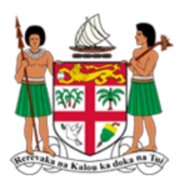Best Constitutional Law Lawyers in Fiji
Share your needs with us, get contacted by law firms.
Free. Takes 2 min.
Or refine your search by selecting a city:
List of the best lawyers in Fiji
About Constitutional Law in Fiji:
Constitutional Law in Fiji is the body of rules and principles that govern the relationship between the government and its citizens as outlined in the Constitution of Fiji. The Constitution lays out the structure of the government, the rights and freedoms of individuals, and the powers of the different branches of government.
Why You May Need a Lawyer:
You may need a lawyer specializing in Constitutional Law in Fiji if you are facing issues related to government power, human rights violations, or challenges to legislation that may be unconstitutional. A lawyer can provide legal advice, representation in court, and help protect your rights under the Constitution.
Local Laws Overview:
In Fiji, the Constitution is the supreme law of the land, and any law or action that goes against it is considered invalid. The Constitution guarantees fundamental rights such as the right to equality, freedom of speech, and protection against discrimination. It also establishes the structure of the government, including the roles of the President, Parliament, and the Judiciary.
Frequently Asked Questions:
1. What is the role of the Constitution in Fiji?
The Constitution is the supreme law in Fiji and governs the relationship between the government and its citizens, outlining the powers and limitations of each branch of government.
2. Can the Constitution be amended in Fiji?
Yes, the Constitution can be amended through a special process outlined in the Constitution itself, which involves a two-thirds majority vote in Parliament and approval in a national referendum.
3. What rights are protected under the Constitution of Fiji?
The Constitution of Fiji protects fundamental rights such as the right to life, liberty, and security of person, freedom of speech, assembly, and association, and protection against discrimination.
4. How can I challenge a law that I believe is unconstitutional?
If you believe a law is unconstitutional, you can seek legal advice from a lawyer specializing in Constitutional Law who can help you challenge the law in court through a constitutional review process.
5. What is the role of the Judiciary in upholding the Constitution?
The Judiciary in Fiji plays a vital role in interpreting the Constitution and ensuring that laws and actions of the government comply with its provisions. The Judiciary acts as a check on the powers of the other branches of government.
6. Can the government limit my constitutional rights?
Under certain circumstances, the government may limit constitutional rights for reasons such as national security or public order, but any such limitation must be proportionate and justifiable in a democratic society.
7. What is the procedure for filing a constitutional case in Fiji?
To file a constitutional case in Fiji, you would need to work with a lawyer to prepare the necessary legal documents and submit them to the relevant court. The case would then proceed through the judicial process according to the rules of court.
8. Can I seek compensation for a violation of my constitutional rights?
If your constitutional rights have been violated, you may be able to seek compensation through a legal remedy known as constitutional redress, which allows individuals to seek relief for breaches of their fundamental rights.
9. Are there organizations in Fiji that can help with constitutional issues?
Yes, there are legal aid organizations and human rights advocacy groups in Fiji that can provide assistance and support to individuals facing constitutional issues or violations of their rights.
10. How can I stay informed about developments in Constitutional Law in Fiji?
You can stay informed about developments in Constitutional Law in Fiji by following legal news sources, attending public forums or seminars on constitutional issues, and engaging with organizations that focus on human rights and legal reform in Fiji.
Additional Resources:
For additional resources and information on Constitutional Law in Fiji, you may consider reaching out to the Fiji Law Society, the Fijian Human Rights and Anti-Discrimination Commission, or the Legal Aid Commission of Fiji for guidance and support.
Next Steps:
If you require legal assistance in Constitutional Law in Fiji, it is advisable to seek out a qualified lawyer specializing in this field who can provide you with tailored advice and representation. You may schedule a consultation to discuss your specific situation and explore the best course of action to protect your rights under the Constitution.
Lawzana helps you find the best lawyers and law firms in Fiji through a curated and pre-screened list of qualified legal professionals. Our platform offers rankings and detailed profiles of attorneys and law firms, allowing you to compare based on practice areas, including Constitutional Law, experience, and client feedback.
Each profile includes a description of the firm's areas of practice, client reviews, team members and partners, year of establishment, spoken languages, office locations, contact information, social media presence, and any published articles or resources. Most firms on our platform speak English and are experienced in both local and international legal matters.
Get a quote from top-rated law firms in Fiji — quickly, securely, and without unnecessary hassle.
Disclaimer:
The information provided on this page is for general informational purposes only and does not constitute legal advice. While we strive to ensure the accuracy and relevance of the content, legal information may change over time, and interpretations of the law can vary. You should always consult with a qualified legal professional for advice specific to your situation.
We disclaim all liability for actions taken or not taken based on the content of this page. If you believe any information is incorrect or outdated, please contact us, and we will review and update it where appropriate.
Browse constitutional law law firms by city in Fiji
Refine your search by selecting a city.











